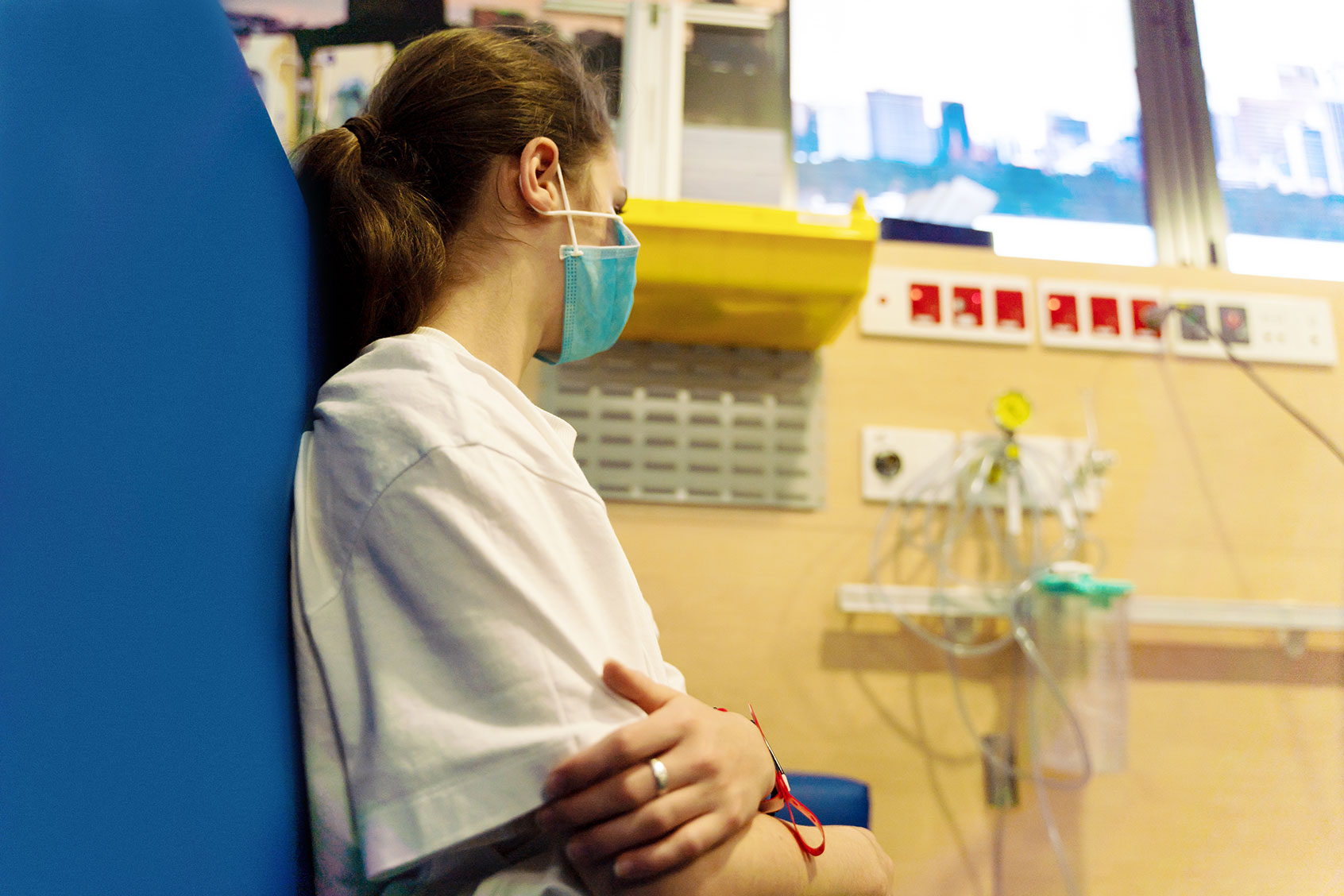For years, public health experts have said that COVID-19 infections in children are “mild.” According to the U.S. Centers for Disease Control and Prevention (CDC), the most common symptoms of COVID in kids are a fever and cough. While some children with the coronavirus are admitted to the ICU and there are pediatric deaths, studies have found that underlying medical conditions including obesity, diabetes, cardiac and lung disorders, increase the risk of severe outcomes.
This research has contributed to how COVID is managed in schools. However, a new study in the Journal of the American Medical Association sheds light on the effect a coronavirus infection can have on children over a longer period. While many people recover quickly from COVID, some don't, experiencing symptoms that can last for months or years. This condition, known as long COVID, not only affects adults but also children. The new research helps us understand the extent kids experience these debilitating conditions — and how we can treat it.
“This is one of the first large-scale national studies to do research related to long COVID across the entire lifespan, with a particular focus on children and understanding the differences in long COVID in different aged children,” Dr. Rachel Gross, an associate professor in the Departments of Pediatrics and Population Health at NYU Langone and the study's principal investigator, told Salon.
In the study, led by the National Institutes of Health’s RECOVER Initiative, researchers asked caregivers to tell them about the symptoms that their children or teenagers had been experiencing more than four weeks after a coronavirus infection. For some children in the study, that meant symptoms their symptoms went on for three months after their COVID infection. For others, it was up to two years. Researchers looked at the symptoms in those children with persisting symptoms and compared them to children who had never been infected with the coronavirus in the past. They then identified similarities in the prolonged symptoms and found they were distinguishable based on age.
"These are the children with the highest burden of symptoms."
“In school-aged children, we heard commonly that children were experiencing trouble with their memory, focusing, headaches, having trouble sleeping, and stomach pain,” Gross told Salon. “And in the teenagers, we were hearing about symptoms related to fatigue and pain, having body or muscle or joint pain, being very tired or sleepy, having low energy, as well as having trouble with memory and focusing.”
A unique symptom the researchers saw in the teenage group was changes in or a loss of smell or taste. Additionally, researchers found clusters of symptoms that are unique to school-aged children and teenagers. The first were symptoms that affect every organ system in the body.
“These are the children with the highest burden of symptoms,” Gross said, adding that caregivers described these children as having a “lower quality of life and more impact on their overall health.” “The second type of long COVID we also saw across both the ages was predominantly characterized by fatigue and pain.”
Want more health and science stories in your inbox? Subscribe to Salon's weekly newsletter Lab Notes.
Studies estimating its prevalence in pediatric populations are limited and conflicting, estimating up to 25% of children infected with the SARS-CoV-2 virus could go on to develop long COVID. A study published in 2024 estimated that up to 5.8 million young people have long COVID.
“This is a public health crisis for children,” Gross said. “We know that child health is so critically important for how children grow and even as they become adults, that chronic illness during childhood and adverse experiences during childhood greatly affects the adults that they can become.”
Gross said the U.S. will see the “long-term impacts of experiencing long covid In childhood for decades to come.”
Dr. Dean Blumberg, chief of pediatric infectious diseases and associate professor in the Department of Pediatrics at the University of California, Davis, told Salon he agreed long COVID is a “public health crisis” for children.
“Some of these kids with long COVID, they are severely affected, they can't do their normal activities, they fall behind school, they can't go to school,” Blumberg said. “And then in this study, they highlighted a lot have had some neurocognitive effects, and that really interferes with with learning.”
For Blumberg, the takeaway from this study, he told Salon, is a “call to arms to increase vaccination rates,” which among children, he said are “abysmal.”
According to a recent KFF survey, while both flu and COVID vaccines are recommended for school-aged children, flu vaccination rates were over three times higher than COVID vaccination rates. While COVID-19 vaccines are recommended by the Advisory Committee on Immunization Practices in the pediatric immunization schedule, they aren’t required for school attendance. According to one study published in the journal Pediatrics, vaccination the risk of an acute infection, but it is less clear whether it protects against long COVID. The latest COVID vaccines were approved by the Food and Drug Administration last week, which the CDC recommends for any six months or older.
We need your help to stay independent
Now, researchers will be tasked with figuring out why long COVID affects children differently based on their age. When it comes to adults, some studies have shown that subsequent COVID infections increase a person’s risk of getting long COVID. The CDC estimates that one in 13 adults in the United States currently have long COVID symptoms.
Gross told Salon she hopes this research raises awareness for both healthcare providers, as well as schools and educators, that “long COVID in children is not rare.”
“That they are likely to have children experiencing these prolonged symptoms within their healthcare systems and their schools,” Gross said. “And that many of the symptoms that I've described, trouble with memory and focusing, headache, trouble sleeping, these are symptoms that you know can impact a child and their schooling.”
Read more
about long COVID


